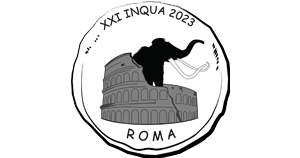Carissimi Soci SGI,
Carissimi Soci Società Associate,
su indicazione della Dott.ssa Irene Puliti (Università di Chieti), vi segnaliamo la call for abstract relativa alla Sessione 185: "Active faults evolution: revelations from different timescales", organizzata nell'ambito del congresso INQUA 2023 - Time for change.
Il congresso si svolgerà a Roma dal 14 al 20 luglio 2023, presso l'Università La Sapienza. Di seguito troverete il link per inviare il vostro abstract: https://inquaroma2023.org/abstract-submission/
Cordiali saluti,
La Segreteria
Dear Colleagues,
we kindly invite you to submit an abstract to the session:
Session 185: Active faults evolution: revelations from different timescales
(Scientific theme: 1D- Active tectonics as multi-scalar driving processes)
to be held at 21°INQUA Congress in Rome (Italy) from the 14th to the 20th of July 2023.
Abstract: One of the main unsolved problems in earthquake geology concerns the mechanisms and processes that produce kilometer-scale displacements from successive earthquakes on individual seismogenic faults. Earthquake ruptures, cumulative fault scarps, and geological fault structures result from the same process, observed at different timescales. However, the link between fault properties at long-term (105-6 yr; e.g., total displacement/length and segmentation pattern), mid-term (103-4 yr; e.g., length/height of fault escarpments), and coseismic rupturing requires further study. This is needed to understand better how faults grow and evolve over different time spans in order to provide a coherent and comprehensive view of fault behavior. Thus, investigating both the fault deformation rate at various timescales and the structural interactions through time is critical to developing geological models of deformation and assessing rupturing surface patterns in high seismic hazard areas. Contributions presenting datasets based on various methods in order to quantify the fault displacement and inform models to unravel fault evolution and displacement build-up are welcome (including geomorphology, structural geology, geochronology, paleoseismology, or geodesy). Furthermore, we invite studies that model fault growth and evolution over different timescales.
INQUA Commission: TERPRO-Terrestrial Processes, Deposits and History
The abstract submission deadline is the 1st of November 2022. Please consider submitting an abstract or contribution to the success of this session.
We are looking forward to seeing you in Rome!
Best regards,
Irene Puliti (irene.puliti@unich.it),
Lucilla Benedetti,
Joanna Faure Walker,
Alberto Pizzi

